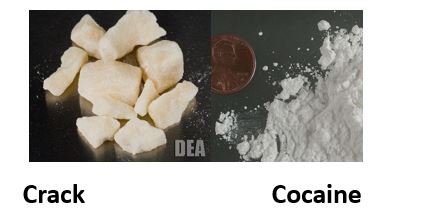President Joe Biden today commuted the sentences of almost 2500 people doing hard time for nonviolent drug offenses. The action was aimed at righting injustice. Old sentencing guidelines provided disproportionately harsh sentences for those found with crack cocaine (largely blacks) while those found with powdered cocaine (largely whites) received much more lenient sentences. Biden, who supported the harsh penalties in the first place as a Senator, said he regretted his role in passing the initial sentences that helped fuel what many now call The War on People rather than the War on Drugs.
John Erlichman, President Richard Nixon’s Chief of Staff, confessed to a journalist the true motivation behind the war on drugs, which began in 1971 when Nixon declared drug use “Public Enemy Number One.” “You want to know what this was really all about? The Nixon campaign in 1968, and the Nixon White House after that, had two enemies: the antiwar left and black people. You understand what I’m saying? We knew we couldn’t make it illegal to be either against the war or black, but by getting the public to associate the hippies with marijuana and blacks with heroin, and then criminalizing both heavily, we could disrupt those communities. We could arrest their leaders, raid their homes, break up their meetings, and vilify them night after night on the evening news. Did we know we were lying about the drugs? Of course we did.”
Under Ronald Regan’s presidency that ran from 1981-1989, drug laws became even more punitive. Instead of going after the supply and focusing their efforts on stopping international drug cartels and organized crime, the Regan administration went after demand. With the agreement of Congress, Republicans and Democrats, they imposed stricter sentencing on people caught using drugs, including mandatory minimum sentences, further criminalizing addiction. The new standards disproportionately affected minorities and destroyed the futures of countless individuals. Nowhere was this more apparent than with their differentiation between crack cocaine favored in the black community and powdered cocaine celebrated on Wall Street. The two drugs were chemically essentially the same, but the punishment for crack was 100 times more severe. Possession of five grams of crack meant a mandatory five-year sentence, while you would have to possess 500 grams of powdered cocaine to get the same sentence. In 2006, while African Americans represented only 15% of the country’s drug users, they represented 74% of those sentenced to prison for a drug offense. According to the National Institute on Drug Abuse 85% of the prison population either has a substance abuse problem or were jailed for crimes involving drugs or drug use. A conviction on someone’s record can make them ineligible for public housing, student aid, and deny them job opportunities, making it very difficult to integrate back into society.
Good for Joe Biden. He did the right thing (in the end). As always, the choice going forward is ours as a society. Continue with the insanity of the Drug War. Or recognize drug use as a disease and a public health issue and treat it accordingly, with empathy and evidenced-based policy, not politics.
* * *
For those wanting to read more about the age of crack and racial disparities, I highly recommend When Crack was King by Donovan X. Ramsey.

